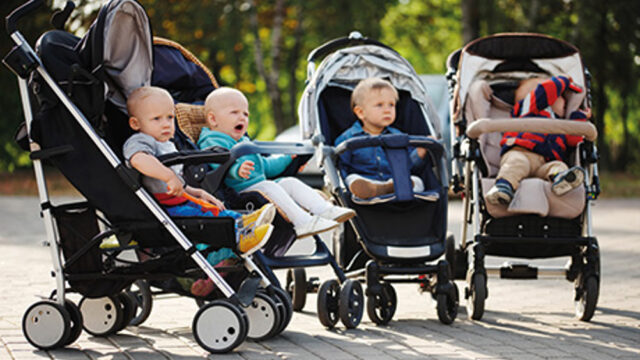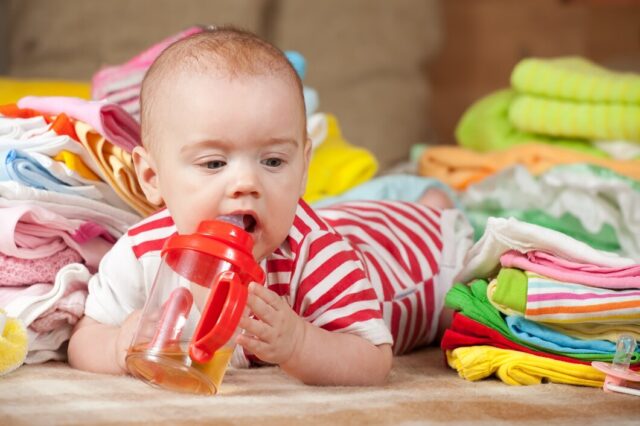Swings, car seats, bouncers — these baby “containers” can be lifesavers when your arms need a break, or chores are calling. But too much time in these devices can lead to a lesser-known condition called Container Baby Syndrome.
What is Container Baby Syndrome?
Container Baby Syndrome isn’t a disease. It’s a term used to describe a range of developmental issues that can happen when babies spend too much time in restrictive devices like:

- Baby seats and chairs
- Car seats (when not in a vehicle)
- Jumpers and doorway jumpers
- Strollers
- Swings
- Walkers
Even some “learning” devices count as containers if they limit your baby’s movement.
“Babies learn best when they can move freely,” says pediatrician Dr. Joanna Buckingham. “When confined, they miss out on key opportunities to explore and develop.”
Why It Happens
Babies are wired to learn through movement. Wiggling, reaching, rolling — these activities help them build strength, coordination, and even early communication skills. Containers restrict that movement, limiting their ability to engage with their surroundings.
Signs of Container Baby Syndrome
Watch for these red flags:

- Flat spots on the head (plagiocephaly): Staying in one position too long can deform a baby’s soft skull.
- Head tilt (torticollis): Tight neck muscles from prolonged positioning can make your baby tilt their head to one side.
- Delayed motor skills: If your child is late hitting milestones like rolling, sitting, or crawling, it could be due to limited movement.
- Speech delays: Restricted neck movement can interfere with early babbling and speech development.
Of course, not all delays are due to containers — always consult your pediatrician if you notice something concerning.
Possible Long-Term Effects
Without early intervention, container baby syndrome can lead to:
- Muscle weakness and poor coordination
- Ongoing developmental delays
- Persistent head shape abnormalities
- Behavioral challenges
Treatment may include physical therapy or special helmets for plagiocephaly, depending on the child’s needs.
How to Prevent It
You don’t have to carry your baby all day — just be mindful of how often they’re in a container. Here’s how:

- Set them down in their crib: Use their crib or a portable play space when you need to put them down for a bit. You can even hang a mobile to help entertain them.
- Try a baby carrier: Babywearing is a great alternative to containers. It allows for movement and builds bonding. Plus, they get extra bonding time with you.”
- Avoid car seat naps: If your baby dozes off during a drive, move them to a flat, safe sleep space as soon as possible. Infants have weaker neck muscles that can’t support sleeping in a car seat for too long.
- Prioritize tummy time: Once your baby’s umbilical cord stump has healed, start with a few minutes daily and build up. Tummy time strengthens muscles and supports overall development.
“Limiting container use doesn’t mean constant holding,” reassures Dr. Buckingham. “It’s about finding a healthy balance that supports your baby’s growth.”




